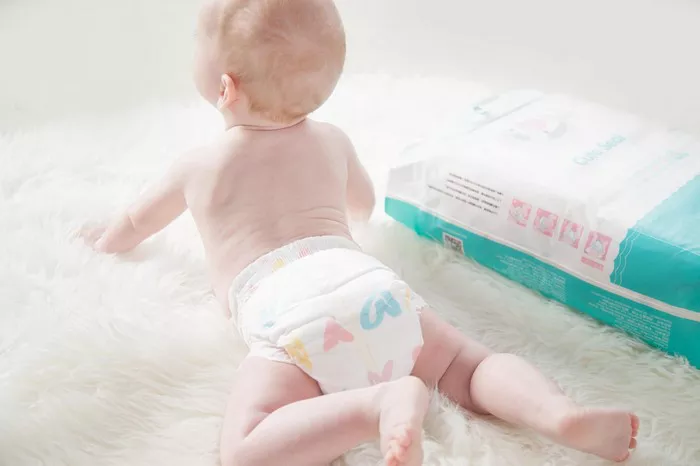As a parent, it’s natural to be concerned about your newborn’s health and well-being, especially when it comes to monitoring their diaper output. Diapers are one of the primary indicators of a baby’s hydration and overall health. At six weeks of age, understanding how many wet diapers your infant should have can provide valuable insight into their development and ensure they are thriving. In this comprehensive guide, we will delve into the significance of wet diapers, factors influencing diaper output, and what to expect at the six-week mark.
Understanding the Significance of Wet Diapers:
Wet diapers serve as a vital sign of your baby’s hydration status and nutritional intake. They indicate that your infant is receiving enough fluids to maintain proper hydration levels, which are crucial for overall health and development. In the first few weeks of life, babies typically produce a specific number of wet diapers per day, providing reassurance to parents and caregivers that their little one is thriving.
Factors Influencing Diaper Output:
Several factors can influence the frequency and volume of wet diapers in infants. These factors include:
1. Feeding Method: Whether your baby is breastfed, formula-fed, or a combination of both can impact their urine output. Breastfed babies tend to have more frequent wet diapers due to the higher water content of breast milk.
2. Hydration: Ensuring that your baby is adequately hydrated is essential for maintaining normal urine output. Inadequate fluid intake can lead to decreased urine production and fewer wet diapers.
3. Temperature and Environment: Hot weather or excessive sweating can increase fluid loss through urine, leading to more frequent wet diapers. Conversely, in colder environments, babies may produce fewer wet diapers.
4. Illness or Medical Conditions: Certain medical conditions, such as urinary tract infections or dehydration, can affect urine output and result in changes in diaper frequency. It’s essential to monitor your baby’s overall health and seek medical attention if you notice any concerning changes.
What to Expect at 6 Weeks:
At six weeks of age, your baby’s urinary system is continuing to mature, and their bladder capacity is increasing. On average, most six-week-old infants will have around six to eight wet diapers per day. However, it’s essential to remember that every baby is unique, and individual diaper output can vary.
Monitoring Your Baby’s Diaper Output:
Keeping track of your baby’s wet diapers can help you gauge their hydration status and overall health. Here are some tips for monitoring diaper output:
1. Keep a Diaper Log: Record each diaper change in a journal or mobile app to track the number of wet diapers your baby has throughout the day.
2. Pay Attention to Wetness: Check the wetness of your baby’s diaper during changes. A wet diaper should feel heavy and full of urine.
3. Look for Signs of Dehydration: In addition to monitoring diaper output, watch for signs of dehydration in your baby, such as dry mouth, sunken fontanelle (soft spot), lethargy, or decreased urine output.
4. Trust Your Instincts: As a parent, you know your baby best. If you have any concerns about your baby’s hydration or overall well-being, don’t hesitate to consult your pediatrician for guidance.
When to Seek Medical Attention:
While it’s normal for diaper output to vary from day to day, certain signs may indicate an underlying issue that requires medical attention. Contact your pediatrician if you notice any of the following:
1. Significant Decrease in Wet Diapers: If your baby has a noticeable decrease in the number of wet diapers or goes more than six hours without a wet diaper, it could be a sign of dehydration or another medical concern.
2. Changes in Urine Color or Odor: Unusual changes in the color or odor of your baby’s urine may indicate a problem, such as dehydration, urinary tract infection, or liver issues.
3. Persistent Vomiting or Diarrhea: Frequent vomiting or diarrhea can lead to fluid loss and dehydration, impacting your baby’s urine output.
4. Signs of Distress: If your baby appears unusually irritable, lethargic, or unresponsive, seek medical attention immediately, as these could be signs of a more serious underlying condition.
Conclusion:
Monitoring your baby’s wet diapers at six weeks of age is an essential part of ensuring their health and well-being. By understanding the significance of diaper output, factors influencing urine production, and what to expect at this stage of development, you can confidently track your baby’s hydration status and identify any potential concerns. Remember to trust your instincts as a parent and consult your pediatrician if you have any questions or concerns about your baby’s diaper output or overall health.


